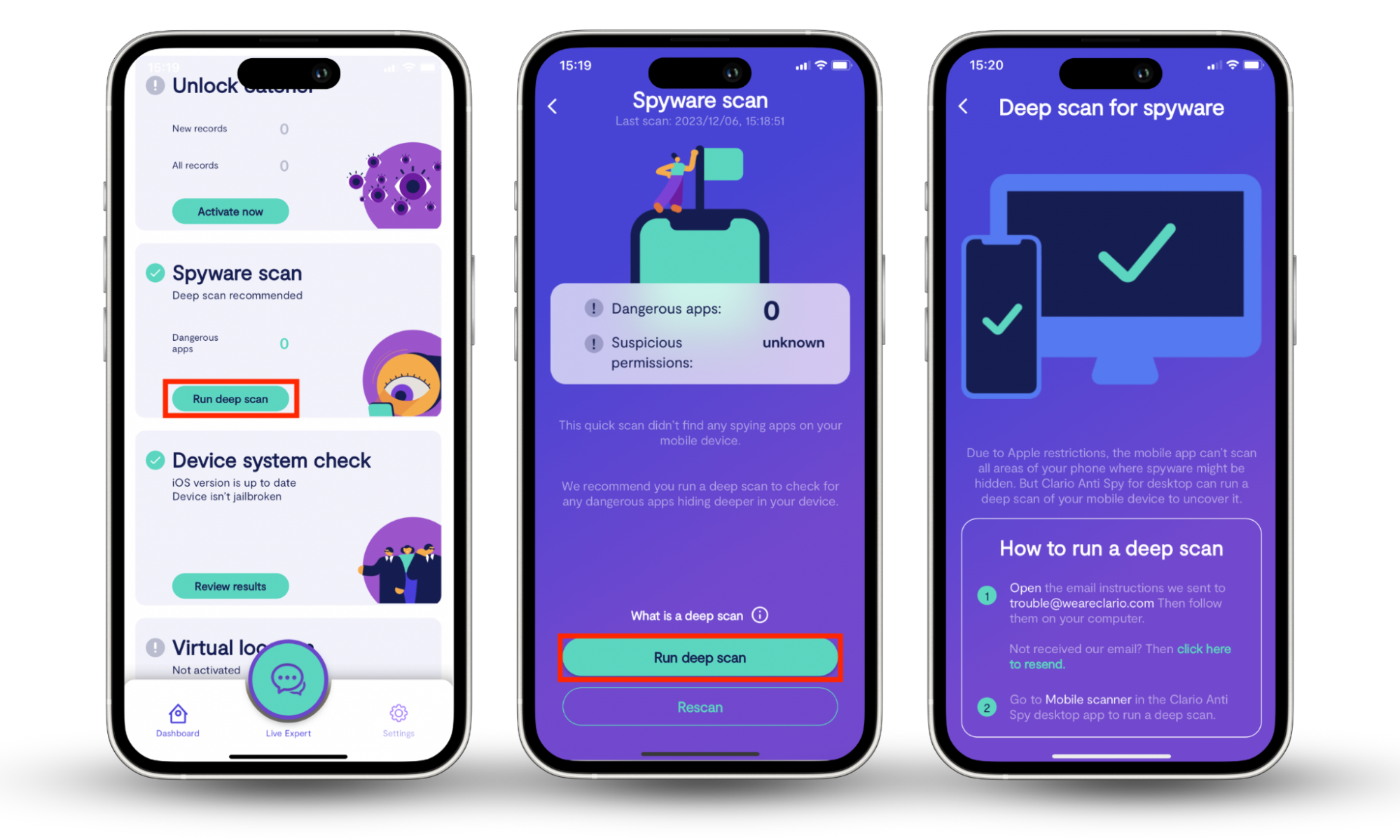Table of contents
- What is stalking behavior?
- What is the use of technology to stalk?
- Is stalking illegal?
- Types of stalking
- Signs of stalking
- Why do people stalk?
- Are stalkers dangerous?
- Most common victims of stalking
- What can you do against stalking?
- 1. How to avoid stalking
- 2. How to report stalking
- What is the punishment for stalking?
- Conclusion
What is stalking behavior?
Definition of stalking
Stalking behavior is when someone keeps bothering you when you don't want them to. They might follow you, watch everything you do, or try to talk to you constantly. These stalkers are often ex-partners, though they can also be other people you know and even strangers.
This kind of behavior, according to the stalking definition, can cause serious emotional, psychological, and sometimes physical consequences for the victim.
What is the use of technology to stalk?
The use of technology to stalk is known as cyberstalking or online stalking. Often, cyberstalkers use digital tools and online platforms to harass, intimidate, or monitor someone. This could include social media, messaging apps, email, GPS tracking, or even spyware on your electronic devices.
Using these technologies, a stalker might gather your personal information, track your activities, send you unwanted messages, or spread rumors about you online.
If you’re concerned, make sure to find out how to protect yourself from cyberstalking.
Is stalking illegal?
In most places around the world, stalking is illegal. For example, in all 50 states of the U.S., stalking is a criminal act that’s punishable by law. However, laws regarding stalking and the definition of stalking in each place may differ slightly.
Types of stalking
There are several types of behavior that are considered stalking, each defined by the type of relationship between the stalker and victim. Here are the main types:
- Intimate partner stalking: This happens when the stalker person is a current or former romantic partner.
- Acquaintance stalking: When someone who knows the victim, like a classmate, neighbor, or colleague, begins to stalk the victim.
- Stranger stalking: This is when a complete stranger begins to stalk someone, becoming fixated and not leaving them alone.
- Cyberstalking: Cyberstalking is when someone uses technology to stalk their victim, tracking their online activities.
- Celebrity stalking: This is the obsessive and intrusive behavior that a fan might have towards a public figure. For example, they might try to make contact, invade their personal space, or follow them around.
Signs of stalking
Here are the six most common signs of a stalker:
- You keep receiving communication, like phone calls, text messages, or emails from someone you don’t want contact with.
- You notice someone constantly watching or following you.
- You keep receiving unexpected presents from someone who shouldn’t have access to your address or personal information.
- Someone is spreading false rumors about you, often online.
- Someone has accessed your personal information without your consent.
- Someone has hacked into your social media accounts or installed spyware on your digital devices.
Why do people stalk?
There are several reasons why people stalk, including:
- Obsession: Stalkers often become obsessed or fixated on someone, thinking they have a special connection, or because they have difficulty letting a relationship end.
- Power and control: Sometimes, people stalk because they want to exert power and control over their victim through fear.
- Desire for reconciliation: In the case of intimate partner stalking, the stalker may think it will prevent their partner from moving on and encourage them to restart the relationship.
- Mental health issues: Some people have underlying mental health conditions that lead to stalking behavior. For example, have a look at these narcissist stalking signs.
Are stalkers dangerous?
Stalkers can be dangerous, and their behavior can pose a serious risk to the well-being of their victims. Not all stalkers become violent, but they may become more intrusive and threatening over time, which can result in physical harm or assault.
Further, stalking can have significant psychological impacts, causing increased anxiety, fear, and a feeling of constantly being watched. This can disrupt your daily life, relationships, and overall mental health.
Most common victims of stalking
Stalking can happen to anyone of any age, gender, race, or background, and you can have either a male or female stalker. However, the most common victims of stalking are women and young adults aged 18 to 24. Most of the time, the victim is stalked by someone they know.
What can you do against stalking?
There are several things you can do to protect yourself against stalking, including:
1. How to avoid stalking
You can’t always avoid stalking, but you can be proactive about your cyber hygiene and reduce the chances of being stalked. Here’s what to do:
- Block your stalker’s number: Once you’ve told your stalker firmly that you don’t want any further communication, block their number as well as their social media accounts. This will make it harder for them to contact you.
- Stay aware: When you’re out and about, stay vigilant and keep your eyes open for signs of suspicious stalking behavior. If you notice anything unusual, trust your instincts and take action to stay safe.
- Upgrade your privacy settings: Adjust your social media privacy settings so your stalker can’t access your personal information or posts. This is how to stop online stalking.
- Use Clario AntiSpy: Clario AntiSpy provides opportunity for people who suspect someone is cyber-stalking them to scan their device for spy apps. Clario AntiSpy’s Spyware scan can help you reduce the chance of stalking threats and react to them promptly.
Here’s how to use Clario AntiSpy’s Spyware scan:
- Download Clario AntiSpy and create an account.
- Click Run deep scan and follow the on-screen instructions.
- If Clario AntiSpy detects any spyware threats, proceed to eliminate them with Clario’s instructions.

2. How to report stalking
If you’re a victim of stalking, you should report your stalker to the relevant authorities immediately. The quicker you act, the more likely they’ll be able to do something to stop your stalker in their tracks and help you feel safe once again.
Here’s what to do:
- Record every incident: The more evidence you have, the more likely law enforcement will be able to help. Take screenshots of any messages or emails, keep any letters, take photos of vandalism or physical harm, and document every interaction in a journal.
- Call the police department: Next, contact your local police department and report the stalking incident. Provide as much detailed information as you can, and request copies of any reports or case numbers.
- Ask about proactive measures: See if the police department can offer advice on protecting yourself, including restraining or protection orders.
- Follow up: Stay in touch with the police. If any further incidents occur, make sure to provide additional information and seek their advice.
Depending on where you live, there may be different procedures for following up with stalking meaning that you’ll have to contact law enforcement to find out. If you feel like you’re in immediate danger, you should call the emergency line (911 in the U.S.) for assistance.
What is the punishment for stalking?
The punishment for stalking depends on where you live. However, punishments often range from a significant fine to multiple years in prison (especially for repeat offenders). Often, victims of stalking get protective orders or restraining orders against their stalkers to make it illegal for them to contact them or be within a certain proximity.
Conclusion
Stalking is a serious offense that can have drastic consequences if you become a victim of this behavior. To stay safe, make sure you stay vigilant, safeguard your privacy, and maintain a strong support network in case the situation escalates. And don’t forget to use Clario AntiSpy to block trackers and uncover hidden spyware.


